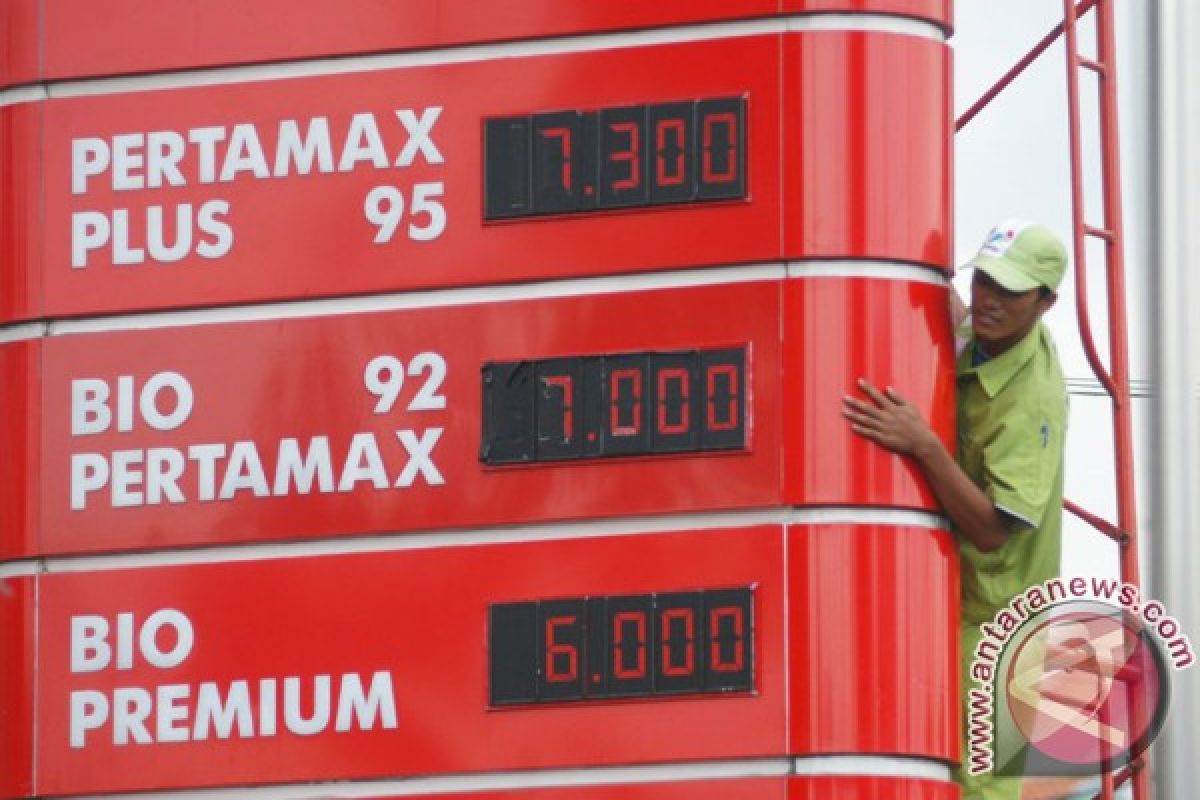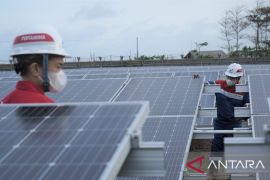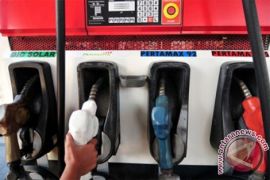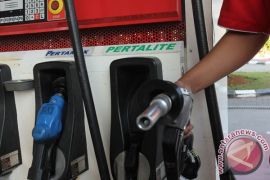"As a legal basis for the policy, we plan to issue a ministerial regulation in the near future."Jakarta (ANTARA News) - Following criticism from some sections of the media for appearing "indecisive," the government finally confirmed that it will go ahead with its plan to limit the consumption of subsidized gasoline.
The government had initially planned to increase fuel prices by Rp1,500 per litre and allocate compensation funds amounting to Rp35 trillion to sectors affected by the fuel price hike, such as transportation, education and rice for the poor.
The House of Representatives (DPR), however, rejected the government`s fuel price hike plan.
Following the cancellation of the proposed fuel price hike plan, President Susilo Bambang Yudhoyono outlined three crucial steps that the government needs to take to secure the amended state budget: to limit subsidized fuel consumption, to increase the state`s revenues and income, and to implement budget savings at both national and regional levels.
The planned limitation of subsidized oil consumption has become crucial after the government's failure to increase fuel prices, since it means that the government would otherwise face a huge deficit in the amended state budget, the head of state said here on Thursday.
The government predicted that if no such steps are taken, subsidized fuel consumption may soar to 47 million kilolitres from the ceiling of 40 million kilolitres set in the state budget that has been approved by the House.
Assuming that the annual oil consumption will amount to 40 million kilolitres, the House approved energy subsidies of Rp225.35 trillion, which is less than the government`s initial demand for Rp230 trillion.
By implementing the ban, the government is expected to reduce consumption to 41-42 million kilolitres.
Meanwhile, Finance Minister Agus Martowardojo recently remarked that the 2012 state budget could still fund an additional 2 million kilolitres of subsidized fuel consumption.
The planned limitation of this consumption will be based upon the engine capacity of private cars.
The Energy and Mineral Resources Ministry`s director general of oil and gas, Evita Legowo, explained earlier this week that the limitation programme will be implemented in stages starting May 2012.
First, starting May 2012, official cars throughout Indonesia will be banned from using subsidized gasoline.
The policy will later extend to private cars with engine capacities exceeding 1,500 cc in and around Jakarta after 60 days, or in August 2012, and Java and Bali after 90 days, or in September 2012.
"As a legal basis for the policy, we plan to issue a ministerial regulation in the near future," Eva added.
Coordinating Minister for Economic Affairs Hatta Rajasa meanwhile stated that the revised budget had actually been prepared based on a price increase of Rp1,500 per litre of subsidized gasoline.
Without the price hike, the government now has to undertake measures to secure the revised budget while at the same time maintaining economic growth.
"According to our calculation, we can save approximately 2 million kilolitres," Hatta noted recently, referring to the government`s efforts to control the use of subsidized fuels.
The government would also be able to save up to Rp20 trillion, assuming that the current Indonesian Crude Price (ICP) remained at US$119 per barrel, he added.
However, there are increasing doubts regarding the government`s readiness to carry out the limitation programme.
After attending a cabinet meeting held by President Yudhoyono, Hatta told the press that there should be no speculation regarding the date of implementation of the limitation because the government has yet to decide on it.
This statement contradicted earlier statements made by Energy and Mineral Resource Minister Jero Wacik and his ministry's director general, Evita, who had stated that the government would soon issue a regulation allowing the plan to be implemented in May 2012.
Two days after Hatta`s statement, the president confirmed that the government was confident of implementing the subsidized gasoline consumption limitation in the near future.
Some experts have warned the government that this implementation is likely to be a complicated matter and that its supervision will be very difficult and costly.
The government had earlier planned to provide special stickers to certain cars, allowing their drivers to buy subsidized fuel. However, this plan has been lambasted by a law maker.
"Using a sticker is too weak. It`s too easy to be manipulated. Someone can just go to a print shop to counterfeit the stickers," Satya W. Yudha, a member of the House`s Commission VII overseeing energy, said recently.
Some economic and oil observers such as Kurtubi and Ichsanuddin Noorsy have also criticized the government's plan to limit the consumption of subsidized gasoline.
The limitation plan is wrong and anti-constitutional because it merely encourages people to switch from using the premium type of gasoline (which is sold at Rp4,500 per litre, thanks to the government`s subsidy) to the non-subsidized Pertamax, another type of gasoline (sold at Rp10,200 per litre for Pertamax and Rp10,350 for Pertamax plus).
The government has imported gasoline so far, and therefore, instead of clinging to imported gasoline, the government should boost the usage of alternative energies available in the country, such as gas, they suggested.
In fact, the government is preparing around 24,000 free converter kits for some cities as part of a pilot project to support a gasoline-to-gas conversion programme.
"The converter kits will be distributed among motorists in the cities," said Ely Sinaga, the director of urban transportation facility development at the Transportation Ministry recently.
"Among the cities that will be part of the gasoline-to-gas conversion programme are Surabaya (East Java), Palembang (South Sumatra), Denpasar (Bali) and Balikpapan (East Kalimantan)," he added.
The converter kits will first be distributed among public transport vehicles and later among private car owners.
Minister Martowardojo explained that the government is also preparing natural gas infrastructure projects to support its programme. It plans to implement 13 gas infrastructure projects worth Rp77.93 trillion within a period of five years starting from 2012.
(T.F001/INE/KR-BSR/A014)
Reporter: by Fardah
Editor: Priyambodo RH
Copyright © ANTARA 2012








